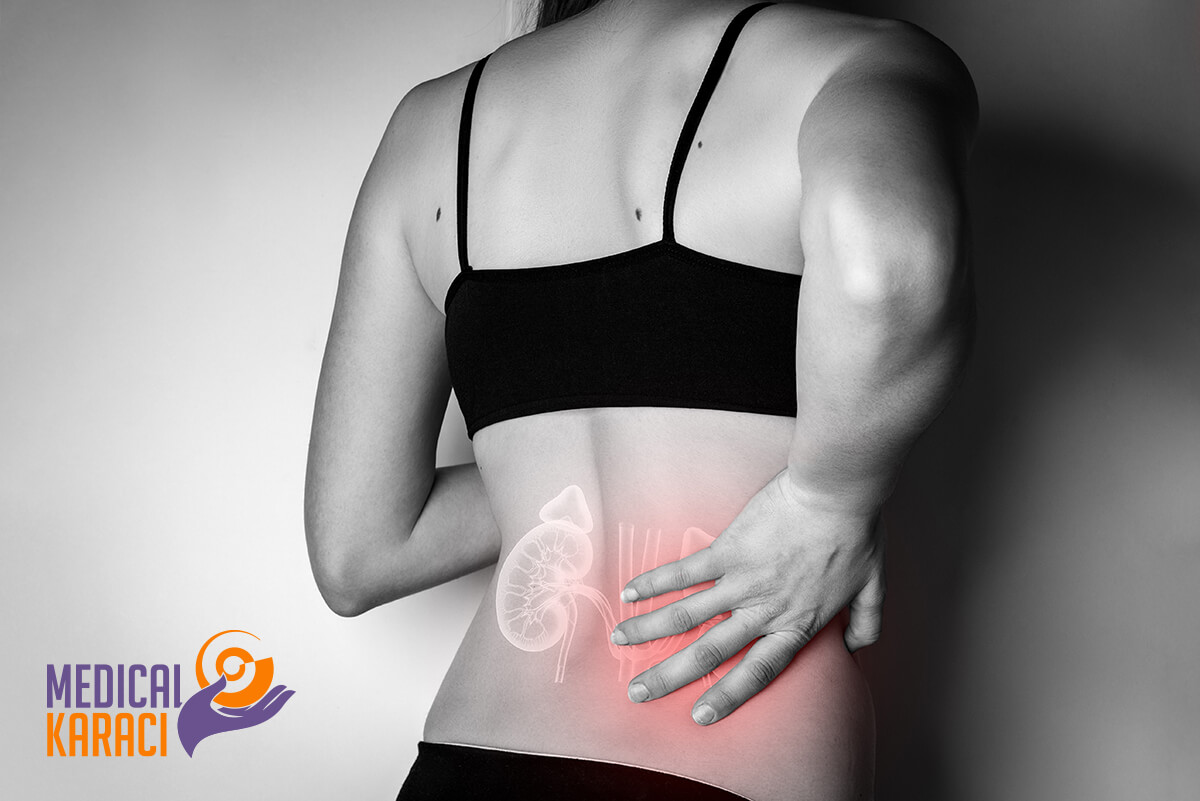Nephrology is a branch of medicine that deals with the diagnosis, prevention and treatment of kidney disease. The specialists who work in the field of Nephrology are a nephrologist and a urologist, but in most cases specialists from other fields are also consulted. The reason for this is the fact that kidney diseases are closely related to heart problems, diabetes, autoimmune diseases, which requires a comprehensive examination of the patient.
Unfortunately, statistics show that even the slightest viral malaise can provoke quite complicated kidney conditions. If they are not addressed in time, the diseases become chronic, and most of them lead to deep and irreversible damage of the kidney tissue.
See a nephrologist or urologist early if you have any of the following symptoms:
- burning during urination
- change in urine color or unpleasant odor
- frequent and difficult urination
- inability to urinate
- pain in the kidney, abdomen and/or groin area
- swelling of the feet
- Nausea
- Vomiting
- high temperature
Diagnosis of kidney disease
The diagnosis of kidney disease is made on the basis of clinical symptoms, laboratory tests and imaging.
Diagnosis with the following tests:
- Descending urography - with a contrast substance and X-rays, the nephrologist looks at whether there is a problem in the urinary tract.
- Ultrasound examination of the urinary tract - a basic diagnostic method, it is carried out quickly and easily. A view of the kidneys, ureters, bladder is made.
- Angiography - a contrast substance is injected into the circulatory system, so it is seen whether there is pathology in the renal arteries and veins.
- Scintigraphy - a radioactive isotope is introduced into the body and its uptake, accumulation and emission from the kidneys is monitored. The structure and function of the kidneys are thus assessed.
- CT scan - we know it as - kidney scanner. It gives us a three-dimensional image of the kidneys,showing even minimal pathological changes and is very important for detecting tumors and vascular abnormalities.
- Kidney biopsy - kidney tissue is taken for examination and thus it is determined what the pathological process is and at what stage the kidney disease is.
Laboratory tests are related to:
- urinalysis - general examination and sterile urine
- 24-hour urine test
- erythrocyte sedimentation rate, C-reactive protein analysis
- creatinine and electrolyte testing
More common diagnoses:
- Acute renal failure - sudden cessation of kidney function
- Chronic renal failure
- Glomerulonephritis
- Nephropathy
- Renal Amyloidosis
- Nephroptosis - shrinkage of the kidney
- Hydronephrosis
- Pyelonephritis or lower urinary tract infection
- Polycystic kidney disease
- Haematuria (blood in the urine)
- Kidney stones
- Kidney Cancer - predominantly cell carcinoma of the kidney
- Kidney disease in systemic connective tissue diseases
Symptoms of kidney disease
The symptoms of kidney disease are very different conditions, in many cases they are nonspecific and general, and sometimes there are no symptoms until the disease progresses to a more severe degree. This is why many people with kidney disease are unaware of its presence or think it is another disease. Periodic checkups and tests are needed, especially for people at higher risk of developing kidney disease - family history, previous kidney disease, diabetes, high blood pressure.
Treatment of kidney diseases
Treatment of kidney diseases is conservative and operative, depending on the cause and stage of development of the disease.
When acute renal failure occurs, treatment is complex. It includes treatment of the underlying cause leading to this condition, restoration of diuresis, correction of the disturbed acid-base balance and balancing of fluids in the body, and dialysis treatment if necessary.
Treatment in chronic renal failure
Treatment for chronic renal failure depends on the stage of the disease. Conservative treatment is applied to stop or reduce the development of kidney failure. It begins with the treatment of the underlying disease, such as the administration of antibiotics in chronic pyelonephritis, in glomerulonephritis, corticosteroids and immunosuppressive drugs are administered, treatment of hypertension, controlling blood sugar, adherence to a specific diet. When the disease is advanced and conservative treatment is not enough, dialysis is also applied, and in end-stage renal failure, kidney transplantation is applied for cure.
Treatment for kidney stones
In the case of a diagnosis of kidney, ureter or bladder stones, if the stone, depending on its structure, size and shape, cannot come out spontaneously, non-medicated or surgical treatment is performed. Increasingly rarely, open surgery is applied. Modern nephrology offers less traumatic methods such as: ureteroscopy with determination of the stone position and its removal, percutaneous nephrolithotomy, laser breaking and extracorporeal lithotripsy which destroy the stone and its particles are discharged naturally.
Treatment for haematuria
When hematuria is suspected, urine staining from taking certain medications, foods, and herbs should be ruled out. The diagnosis is made on the basis of urine color, laboratory tests, ultrasonography, cystoscopy. Hematuria is a symptom, it is necessary to look for the cause of its occurrence, which may be urinary infection, chronic nephrological diseases, enlarged prostate, kidney and bladder stones, kidney or bladder cancer, in which after hematuria there may be a long period without complaints and not diagnosed in a timely manner.
Treatment for Hydronephrosis
In hydronephrosis, the urine formed in the kidney is retained in its cavity. The causes of the blockage can be various diseases, but the most common is stones in the kidney and ureter. Treatment may be medication, breaking the stone, placing a stent to drain the urine, placing a nephrostomy. Hydronephrosis requires immediate treatment, it is dangerous for the kidney and the whole organism, and in some cases it can lead to stoma of the kidney and the need to remove it.
Prevention
Preventive checkups, examinations and self-monitoring for the normal functioning of the body should become the priority of every person.
Prophylaxis of the kidney we can do ourselves by:
- we take sufficient amount of water
- consume salt and sugar moderately
- we provide the necessary rest
- physical activity
- avoid excessive alcohol consumption and uncontrolled medication
- control diabetes, high blood pressure and overweight
For more information, you can call +359895770869.




